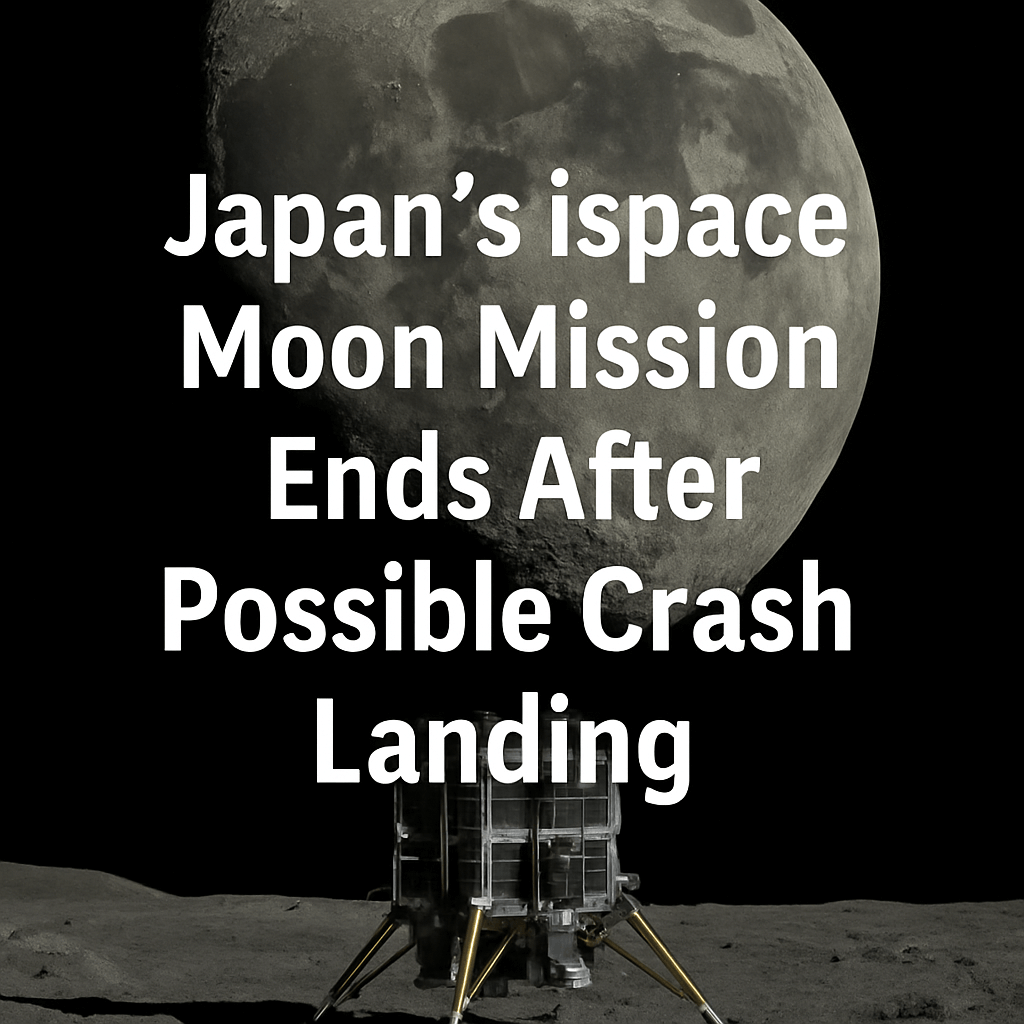Japan’s ispace Moon Mission Ends After Possible Crash Landing

Japan’s aspiration to achieve its first soft lunar touchdown via a private enterprise was thwarted on Friday when the ispace mission was aborted following indications of a crash-landing. The Tokyo-based startup had aimed to become the third private company globally—and the first outside the United States—to successfully execute a controlled landing on the Moon.
Mission Overview
ispace‘s unmanned Resilience spacecraft commenced its final descent towards the lunar surface with high hopes. Initial phases reportedly went as planned, with mission control confirming that the lander had executed a successful burn of its main engine to initiate deceleration.
However, shortly after achieving a positioning that was “nearly vertical,” communication with the spacecraft was lost. In a statement, ispace conveyed, “Based on the currently available data… it is currently assumed that the lander likely performed a hard landing.” Following the loss of contact, the company declared that it is “unlikely that communication with the lander will be restored,” leading to the conclusion of the mission.
Technical Challenges
- Velocity Control: Soft landing on the Moon requires precise control of descent velocity to avoid hard landings, which can damage equipment and payloads. According to ispace, technical problems inhibited the lander’s ability to decelerate adequately to achieve the target landing speed.
- Mission Specifications: The Resilience lander was equipped with innovative payloads, including a micro rover named Tenacious, designed in Luxembourg, which was intended to relay data on lunar conditions.
- Experimental Payloads: Notably, the lander carried a water electrolyzer, aimed at splitting water into hydrogen and oxygen, a food production experiment, and deep-space radiation probes, highlighting ispace’s commitment to contributing meaningful scientific research.
Historical Context
Only five nations have successfully achieved soft lunar landings thus far: the Soviet Union, United States, China, India, and most recently Japan. With the resurgence in lunar exploration and the growing involvement of private companies, the dynamics of space exploration are rapidly evolving.
The recent mission follows a previous attempt by ispace two years prior, which also ended in a crash. The failure considerably highlights the complexities involved in lunar landings, which necessitate substantial technological readiness and capacity for failure mitigation.
Private Sector Involvement in Lunar Exploration
In recent years, several private entities have ventured into the lunar landscape, promoting the notion of more cost-effective and frequent space access. For instance, Intuitive Machines successfully conducted the first private lunar landing in March 2023 with its Blue Ghost spacecraft, which, despite an awkward landing angle, completed operational tests.
Additionally, Firefly Aerospace demonstrated notable success with its lunar mission, launching alongside ispace’s Resilience on a SpaceX Falcon 9 rocket, marking a significant milestone for private space missions.
Future Implications
Despite the setback, ispace CEO Takeshi Hakamada emphasized the importance of learning from this mission, stating, “The most important thing is to use this result for future missions.” This commitment to leveraging experiences from failed attempts may serve as a crucial learning point for upcoming endeavors in space exploration.
Additionally, the mission aimed to acquire two lunar soil samples for sale to NASA at a nominal price of $5,000. Though the symbolic transaction would not involve actual ownership claims, it could bolster the U.S. position regarding commercial operations on celestial objects.
Conclusion
As enthusiasm for interplanetary exploration persists, the challenges faced by ispace underline the demanding nature of space missions. The focus on learning from failures—rather than solely celebrating successes—will be crucial for the burgeoning private aerospace sector. Upcoming projects, whether by ispace or competitors like Intuitive Machines and Firefly Aerospace, will inform and redefine strategies for future lunar endeavors.
“Never quit the lunar quest,” concluded announcers on ispace’s livestream, encapsulating the spirit of exploration despite the challenges faced.
Source: fortune